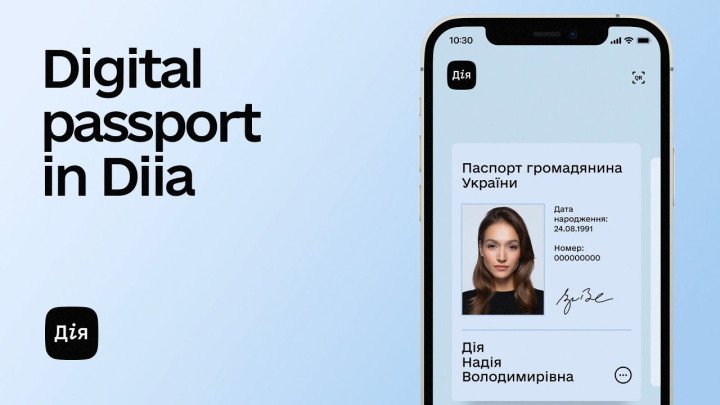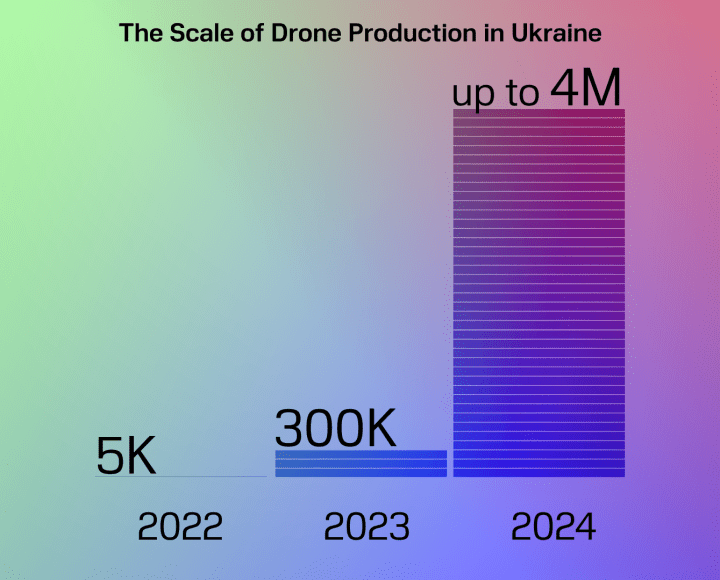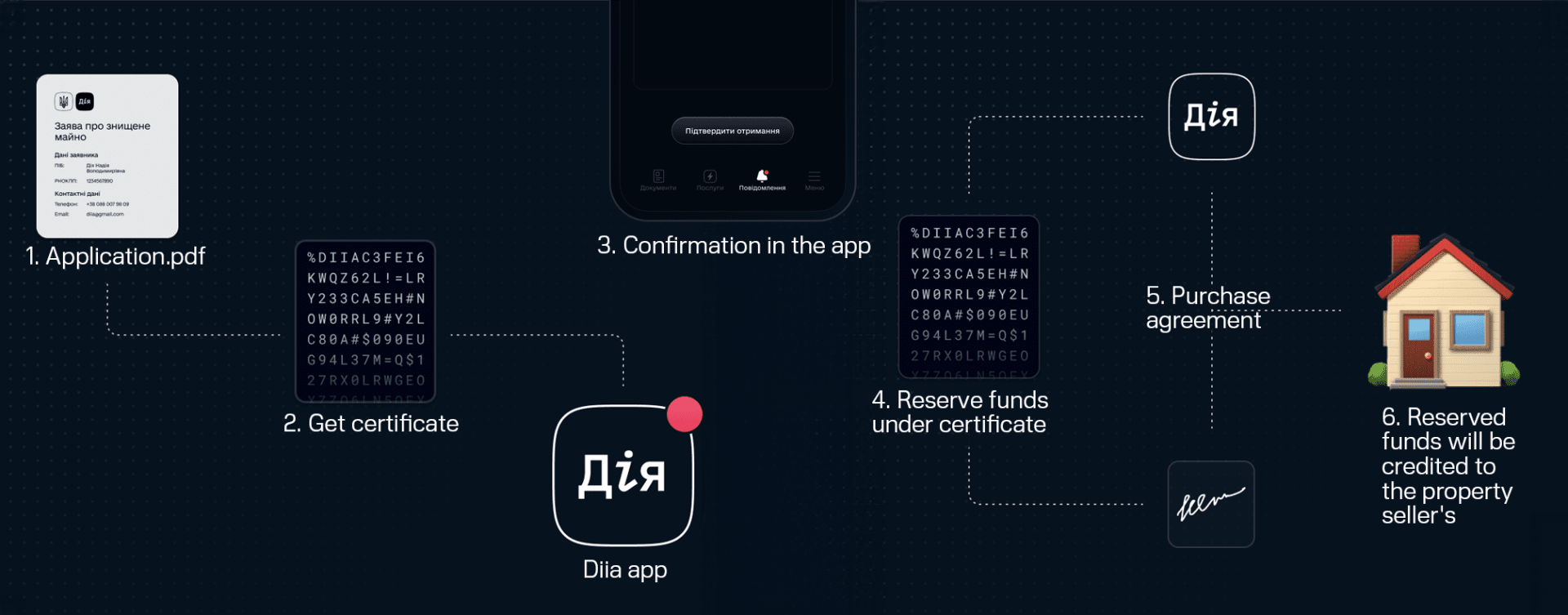- Category
- Opinion
Building Trust Through Digital Public Services—the Ukrainian Model

Ukraine’s tech innovations are revolutionizing military agility, public services, and citizen trust in a country at war—creating a thriving digital democracy, writes Ieva Ilves, former First Lady of Estonia and advisor to Ukraine’s Digital Transformation Ministry.
When I first arrived in Ukraine in 2023, I embarked on a role as an advisor to share European digital transformation expertise. Then applying for a job at the EU mission, I had already doubts about how much European digital experience might be applicable for a country at war. To no surprise, I found myself becoming a student of what may be the world's most ambitious and pioneering digital democracy transformation. For nearly two years, I've observed Ukraine not only survive but thrive digitally under conditions that would cripple most governments.
Simple things turned out to be my favorite: a QR code in any restaurant making payment effortless and convenient. While for me it started as an exciting journey discovering digital "accessories" that augmented my life, for the average Ukrainian these represent more than a hundred and twenty essential services that ease their daily lives. Consider this: no need to carry any ID or passport, just your mobile device with a properly stored and secured digital passport in the state app "Diia"—which any institution can scan, read, and authenticate your identity.

Technology's power to transform society
We are witnessing a historic transformation where digital innovation is reshaping societies with an impact comparable to the invention of the Gutenberg printing press in the 15th century making books available to everyone and altering the course of human history. Just as the printing press democratized knowledge and shifted power structures centuries ago, today's digital revolution is fundamentally altering not only how societies function and govern themselves, but how economies thrive and business companies scale profits larger than the budgets of many countries.
Yet this transformation occurs against a backdrop of growing global conflicts, where technology and instantaneous innovations are an integral part of the war. But technology is not merely a tool for victory. In the broader global economy, there is a race for dominance in shaping future technologies—to name a few AI and quantum computing. As Gutenberg's printing press centuries ago, technology today is not only a power of wealth but an agent of change.
Who and how will shape the future technologies might hold the power to shape the future societies globally.
Ieva Ilves
Former First Lady of Estonia and advisor to Ukraine’s Digital Transformation Ministry
While democratic political systems struggle to adjust to these massive transformations, authoritarian countries share "best practices" fast and succeed much better in enabling power consolidation empowered by tech.
Ukraine's two-front digital success
Ukraine is a striking example where technology and digitization have been flourishing despite the brutal war waged by its outsized neighbor Russia. It is because Ukraine has recognized the transformative power of technology and invested in applying this power in two critical domains:
Military agility
The military domain is one of the most conservative branches in every Government as it is built on large state budgets, carefully vetted and planned long-term ahead, executing complex procurement procedures, and then embedded in military units requiring another length of standards, procedures, and exercises. It is difficult to apply agile start-up thinking mode in the defense structures. Ukraine has broken that stigma and demonstrated to the world that an agile approach can be brought into military operations—as seen in how drone production has soared. And explanation of Government steps simplifying administrative process—less bureaucracy but more transparency which leads to better price offers for performance.

Digital services that matter
While the private sector in Silicon Valley still leads the global race in innovation and digital transformation, and the largest technology companies reside in democratic parts of the world, democratic governments have largely failed to harness digital transformation to serve their citizens effectively. To me, this is where Ukraine's experience offers its most valuable contribution to the world.
Ukraine has created a state in smartphone through Diia—becoming the only country with a fully functional and secure digital passport system. But what makes Diia truly remarkable is its guiding principle: every new service must directly address real citizen needs. The ecosystem grows not by adding features, but by solving problems.
One of the recent additions perfectly illustrates this approach: Online marriage. Some may find it trivializing, but it represents something far more profound: Thousands of people are separated by war—fighting on frontlines, relocated from occupied territories or dangerous regions, in emigration. The overall PTSD impact is not yet even analyzed. An opportunity to tie the relationship in a marriage over the phone can be invaluable to many. Time will show. The Ministry of Digital Transformation designs its products and services based on data analyses of people's needs and adjusts its work quickly by measuring its KPIs.
Beyond connecting people, Diia has transformed how citizens interact with the state during wartime.
The state does matchmaking for those who need the service and those who can provide it. Whether it is an individual plumber or a big construction company—they can register themselves in Diia. A citizen who already has a difficult life has a very simplified version to file, get money, and spend money on housing. The state has outstanding transparency and reliability that money is not abused. It’s a win-win for everybody—for those who provide the support and for the citizens.
Ieva Ilves
Former First Lady of Estonia and advisor to Ukraine’s Digital Transformation Ministry

This isn't just about digitizing services—it's about rebuilding trust between citizens and their government through transparency, accessibility, and measurable results. Each new service demonstrates how technology can strengthen democracy rather than undermine it.
What's remarkable is how this digital transformation quietly builds trust through everyday convenience. Even if citizens remain skeptical of politicians or politics—as they should in any healthy democracy—they develop an appreciation for a state that makes their daily lives easier. Ukrainians themselves might not fully grasp how advanced their digital public services are; it's only when traveling abroad that they realize how far ahead their country has moved. This is perhaps the most profound achievement: building trust not through grand declarations, but through reliable, accessible services that work for people every day.
Building trust through everyday innovation
For the 18th consecutive year, freedom around the world has declined, according to the Freedom House's "Freedom in the World 2024" index. Technologies are increasingly misused for election manipulation, disinformation campaigns, surveillance, and power corruption. A lot has to be changed to defend our freedoms, or put it in Reagan's words: "Freedom is never more than one generation away from extinction. It must be fought for."
Ukraine offers not only lessons learned for military experts—but for all democratic countries on how to embrace technologies in a modern democratic state. The role of the public sector is to serve its citizens and digital innovation can deliver that better than any other invention centuries ago. The key is to place the citizens at the center and reinvent the Government that serves its people.
-af81c26015dfd8a5ba94ea94254c2d6c.jpg)
-2c683d1619a06f3b17d6ca7dd11ad5a1.jpg)

-da3d9b88efb4b978fa15568884ef067f.jpg)
-73e9c0fd8873a094288a7552f3ac2ab4.jpg)
-f3bede69822b36ac993a6cd5b65014f9.png)


